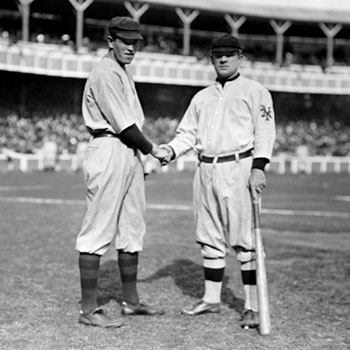Hal Chase, known for his irreverent and independent nature, played a pivotal role in challenging baseball’s reserve clause—a rule that bound players to their teams indefinitely, severely limiting their bargaining power and freedom of movement. In 1914, after defecting from the Chicago White Sox to the Buffalo Blues of the upstart Federal League, Chase became one of the first players to fight the reserve clause in court and win. His victory allowed him to play for the Buffalo Federals, but it also drew the ire of powerful figures like White Sox owner Charles Comiskey, who vowed Chase would never play in the American League again.
Chase’s open defiance and legal triumph against the reserve clause led to his effective blacklisting from the American League. Ban Johnson, the league’s president, admitted in 1918 that Chase was barred specifically for his challenge to the reserve clause and his perceived betrayal of Comiskey, not for later gambling allegations. While Chase did continue his career in the National League for a time, his reputation suffered, and he was ultimately ostracized from Organized Baseball, with his ban becoming informal but absolute after 1920.
Today, Hal Chase is increasingly recognized as a pioneer for player rights, standing on the right side of history in his opposition to the reserve clause. His resistance, once seen as troublemaking, is now viewed as an early, courageous stand against an oppressive labor system. Modern players, who enjoy free agency and greater bargaining power, stand on the shoulders of trailblazers like Chase, whose willingness to challenge the status quo helped pave the way for the player rights movement that transformed professional sports.
Hal Chase’s courageous legal battle against baseball’s reserve clause marked him as a trailblazer for player rights, challenging a system that denied athletes control over their careers and laying early groundwork for the free agency era.
His willingness to stand up to powerful owners, win in court, and endure blacklisting from the American League—long before gambling allegations surfaced—demonstrates a legacy of advocacy that modern players continue to benefit from.
Combined with his outstanding record as one of the dead-ball era’s greatest first basemen, Chase’s pioneering role in labor rights and on-field excellence make a compelling case for his recognition as a candidate for the Baseball Hall of Fame.

